The most important accessory to a birder is their trusty pair of binoculars. If you look around, there is a myriad of options concerning what brand to get, and peer pressure may have you shelling out a good portion of your income for an expensive pair. Well, binoculars are not toys and are quite breakable, but the joy of owning a pair comes from using them, so these 11 binoculars maintenance tips will come in handy!
Are you thinking about buying binoculars to have a good look at all the magnificent birds of Africa?
1. Know How and Where You’ll Be Using Your Binoculars
This is a great point to note particularly for new buyers. As you search for a pair of binoculars, it’s good to know and understand how you’ll use them and where you’ll be using them.
This will enable you to look for a pair that suits your needs and environment.
Knowing this prevents you from purchasing a very expensive and quality pair, then using them as a paperweight cause you’re too afraid to go with them on a safari.
If you’re going to places that have high humidity or rainfall, then waterproofness is a factor in your selection.
It’s also good to know just how much punishment your binoculars can take before they damage.
Having and using your pair in some environments is enough to break them, such as bird watching in rocky and hilly areas or high up in the canopies of a rainforest.
As you purchase or use your binoculars, it’s good to have an idea if they can be bashed around as you explore, so as not to leave you stranded and disappointed in the middle of your bird-watching excursion.
2. Always Carry Binoculars in a Case
The protective case for your binoculars is essential in ensuring they stay in one piece.
When you leave your hotel or home to go out exploring, your bag usually has a lot of stuff, stuffed in there.
From foods to chargers, cameras, and other devices, having your binoculars in there without the case will lead to some horrible scratches and dirt on both the body and lenses.
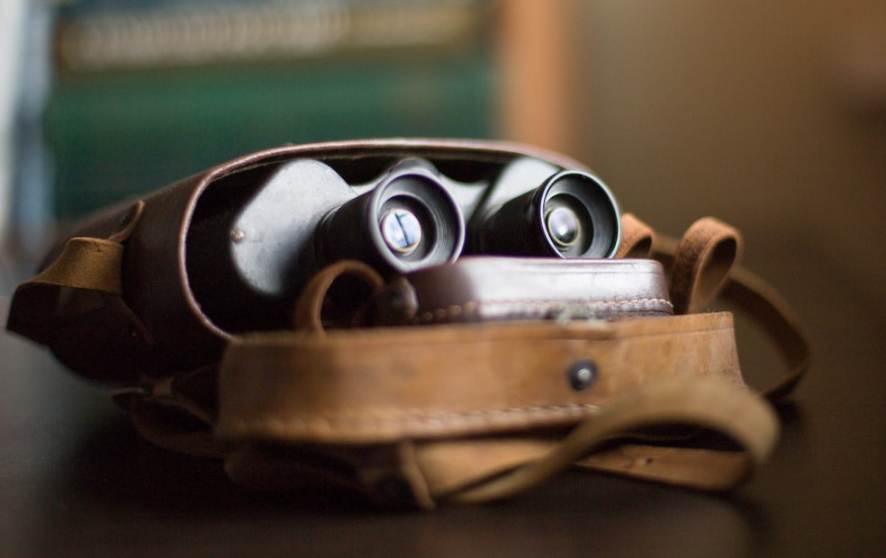
3. Always Use A Strap for your binoculars!
Even the most careful people slip now and then. Just the same, holding your binoculars in your hands without using the strap might eventually lead to you dropping them; a costly mistake.
A strap may either be a shoulder or neck strap, or whatever works for you, but either way, make sure it is on.
Particularly when carrying out activities such as hiking, cycling, or any other strenuous activity, the chances of you dropping your binoculars are high.
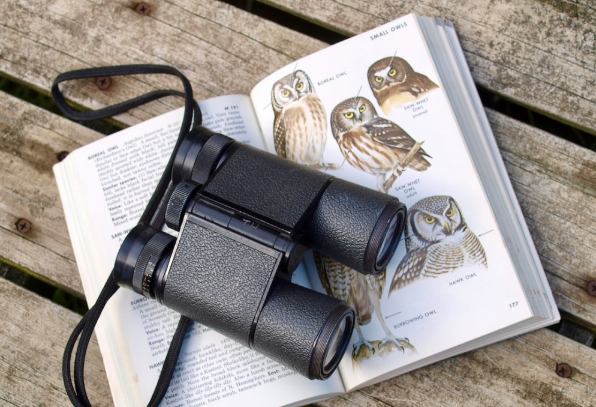
Make sure the strap is secure on your shoulder or around your neck, cause in case of an accidental drop then it serves no purpose.
It’s advisable to constantly check your strap for wear and tear, and also the clips connecting the strap to your binoculars to ensure your trusty device continues serving you.
4. Direct Sunlight Isn’t Your Friend
Do not leave your pair of binoculars in the hot sun, or in confined areas that will eventually get really hot for long periods of time.
Too much heat will cause the rubber on the housing to expand, creating pressure points that could break your binoculars.
Keeping them in their case will help reduce the likelihood of damage from the sun or any other extreme environments.
Want to find the best binoculars for a safari? Check out my blog post here!
5. ALWAYS Ensure the Lenses Are Clean.
The best way to keep your lenses clean is not to clean them at all or as infrequently as possible.
I know this sounds contradictory as lenses will get dirty, so let me explain.
All binocular lenses have a special coating that prevents light from reflecting off the polished glass surfaces and is made of exotic materials.
These coatings are usually only one molecule thick ( a very thin layer), and once applied cannot be reapplied.
They are essential in ensuring a good quality image free of chromatic aberrations and are easily the most sensitive part of your binoculars.
Back to the issue of not cleaning them: these coatings are sensitive and can easily be damaged due to careless cleaning.
The best way of ensuring your lenses don’t get dirty is to always keep them covered either within the case or with eyepiece covers.
But, they will and do get dirty so, you’ll get to know just how to clean them below.
6. Ensure The Body Stays Clean.
Ensure all parts of your binoculars are clean before putting the pair in storage.
The body of the binoculars has the most interaction with your hands, and apart from the dirt we pick up everywhere, our hands have natural oils.
All of these transfer to the body and over time accumulate. A dirty case will be sticky and it won’t be fun using it.
How to actually dissemble and clean a pair of binoculars, you can see in the video below:
7. Saltwater Is A Silent Enemy of your binoculars
Even if your pair of binoculars is waterproof, salty water is still a bad thing.
For those who use their binoculars around the ocean, then saltwater and sand will be an issue.
Long-term salt accumulation from saltwater makes the rubber on the body stiff and brittle damaging it faster.
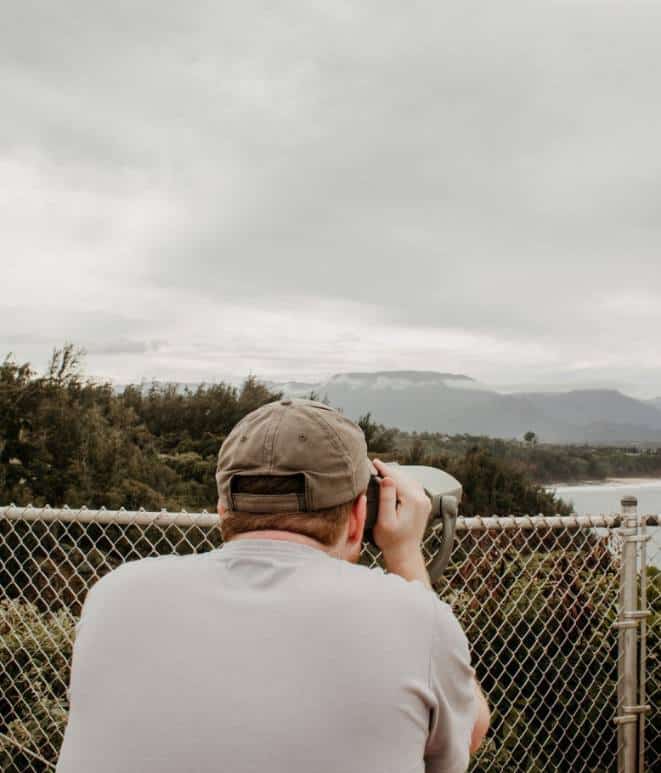
Do not let your binoculars sit with sand and saltwater for long as this degrades the parts faster leading to overall damage.
If your binoculars are waterproof then you should gently rinse them under running water to remove all the salt water.
But if not waterproof, then don’t dare put them anywhere near running water.
Want to find the best binoculars for a safari? Check out my blog post here!
8. More Tips for Cleaning and Protecting Your Optics
Now that we have gone through the major things to note, there are still so many things you should and shouldn’t do. These include:
- Don’t leave the binoculars on the seat of a car while driving.
A simple quick stop will send them flying forward, leading to damage, or they may be susceptible to theft.
Also leaving them on the seat on hot days will definitely lead to materials being under stress from the sun’s heat. - If your pair has solid twist-up eyecups, then keep them retracted when traveling or when storing them. They may become cross threaded and stuck in place from knocks and accidental bumps, which will warrant a trip to the repair shop.
- If your binoculars use a Porro prism mechanism, then set the focus to infinity for storage.
- If you have been using binoculars on a neck strap for a prolonged amount of time, you’ll become fatigued. At this point, it is advisable to change the position from the neck to the shoulder.
- No matter how simple or small a repair might look, don’t do a DIY, and repair anything yourself. Take your binoculars to a professional to take care of the problem.
- Do not adjust any movable parts, such as the focusing ring, and dioptre adjustment ring beyond their limits.
- For night vision binoculars, do not use during the day or while staring at bright light. Particularly for those using image intensifier tubes, this will damage the internals and also your eyes.

9. How To Clean Your Binoculars
Now that you know how to protect your binoculars from damage, let’s look at how to clean them.
How To Clean binocular lenses?
Lenses are quite delicate, mainly due to the special anti-reflection coating applied to them. Once they get smudged DO NOT use the following to wipe them:
- Tie
- Handkerchief
- The tail of your shirt or t-shirt
- Household detergents
- Windex
- Newspapers
- Toilet tissues
- Paper towels
- Saliva.
Any paper product in the list above is made of wood fibers, which can scratch the lens coating.
The material making your pieces of cloth may be rough enough to scratch the coating.
Windex and other household detergents contain Ammonia, which will dissolve the coating and whatever is in your saliva may react with the coating leading to degradation.
When cleaning the lens using either a good soft, lens cleaning cloth purchased from a camera store or the cleaning cloth that comes with the binoculars.
For the lens cleaning solutions, use isopropyl alcohol-based products, and be sure to read the label to ensure they are safe for use on lenses.
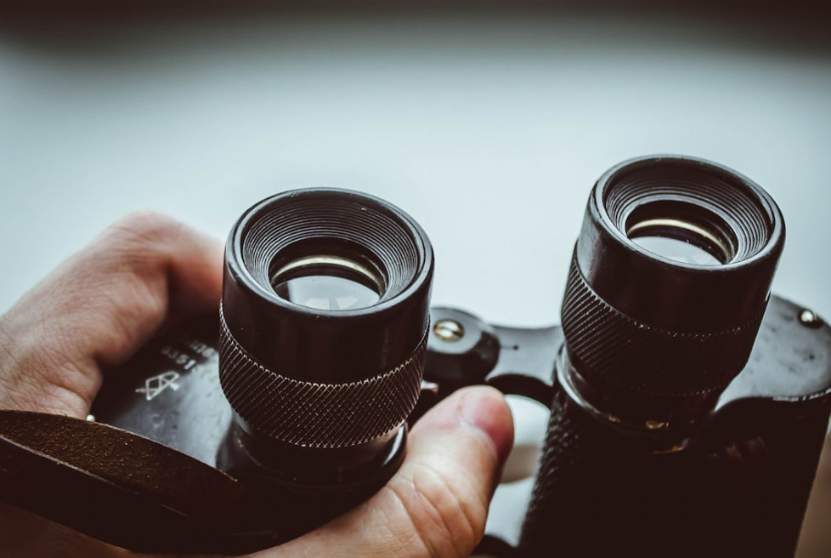
To clean the lenses, hold them upside down, with the lenses facing downwards and blow on them.
This ensures the larger specks fall off on their own, and when blowing on them, this reduces the likelihood of saliva specks falling on the lenses.
Use canned air, a puffer brush, or a soft camel brush for this process if available.
Then take the lens cleaning cloth and fold it at least four times to prevent the natural oils from your skin from soaking through the cloth to the lens.
Put a drop of lens cleaning solution on the cloth and wipe in a circular motion instead of a back and forth.
The circular motion reduces the chance of their being left a mark on the lens, and also don’t apply too much pressure as you clean.
The easiest way to securely clean your binocular lenses is using a Professional Lens Cleaning Pen to highly avoid scratches!
Cleaning the body
Over time and extended use, the body will start feeling sticky from dirt and oil build-up. This build-up comes from the natural oils on our fingers, things like bug spray, food, and dust.
The first precaution against this is to always ensure your hands are clean before handling the binoculars.
The rubber armor on many binoculars can be cleaned using a damp sponge/cloth, warm water, and mild diluted dishwashing soap. Once clean, rinse the body off and pat dry with a clean but soft microfiber cloth.
To remove the stickiness that accumulates in the body, then it is good to use an alcohol-based product that can dissolve the fats.
10. Moisture and Condensation.
Moisture and Condensation will form on the cold surfaces of binoculars when you move from a cool to a hot and humid location. This moisture can encourage the growth of fungus and trap any dust on the device.
So before storing your device, let it reach room temperature then gently wipe it dry. After which store it its case with an absorbent material such as silica gel.
Are you thinking about buying binoculars to have a good look at all the magnificent birds of Africa?

11. More FAQs on binoculars maintenance tips
Now that you have an idea of how to clean and maintain your binoculars, there still might somethings bugging you, such as:
Can you clean binoculars with water?
For binoculars that are waterproof, then you can use water to only rinse the body if it has been in a saltwater environment.
For those that are not waterproof, then you can use a cotton swab drip in water to clean out the body.
Avoid water getting near the lens as it may seep into the internal components and cause damage. Only use the recommended solutions to clean your binoculars.
How to defog a pair of binoculars?
If condensation finds itself inside the binoculars then this is bad, cause apart from damaging the interior components it will also obscure your view.
Then one of the best binoculars maintenance tips is to remove it by storing the bag in an air-tight bag with a few pouches of silica for a couple of days.
The main reason binoculars get humidity inside is when they are used in an environment they are not rated for such as in a high humidity or rainy region.
Or when they are exposed to great temperature differences. And if the amount of water is large, then you should just take them to a specialist.
Related article:
My Final Conclusion.
I hope that I have informed you well enough about these 11 binoculars maintenance tips, but if you have any more questions, please feel free to leave them down below in the comment section and I will get back to you as soon as possible!
You can also join my social media channels or Facebook group for more pictures and stories on my adventures to Africa 😉
I wish you happy travels and bird or game watching!
Kind regards,
Lizzy
I now have a YouTube channel as well!
YouTube
Hello Africa travellers!
Who am I? Well, the least you can say is that I am quite crazy about Africa, its nature, its climate, its culture, and more.
As a young woman in my twenties, I had already traveled to several African countries by traveling along in an overlander on my own and mostly camping ( or glamping ) and just fell in love with the diversity of it all.
So much, so that at the age of 26, I went back to university to study biology, which, unfortunately, I couldn’t finish because of health reasons (yes, I got sick from a tropical disease, oh cynicism). But this did not stop my dream of traveling back to Africa several times, and I still do.
My dream was back then to leave Europe and go study animal behavior, especially the elephants (sure, that’s every girl’s dream haha), but I am also very much intrigued by hyenas and other “ugly African animals“.
So, I “kind of” have a little bit of a scientific approach to my articles, when I write about African birds, for example. And most of all: the passion.
But life goes on, you move from one side of the country to the other, you get sick again and top it off with lower back problems, and before you know it, you are over 50 hahaha!
Now, I still travel to Africa, but take it a bit “easier” than the good old camping days, and stay in comfortable, yet affordable accommodations, together with my husband Wouter.
These are some of the countries I have traveled to: Kenya, Tanzania, Zanzibar, Malawi, Zambia, Zimbabwe, South Africa, Namibia, Botswana, Tunisia, and a little bit of Lesotho LOL .
While clearly not being African territory, but Spanish, I also visited Gran Canaria and Tenerife, and location-wise, I consider them “African”, because of their climate and nature, sue me :-p
The last trip I took was to South Africa in the year 2023, and it sure got the fevers for Africa back! From the Barberton mountains to the Drakensberg and the Southcoast, one month wasn’t enough at all to see the whole country, so we’ll be back! At ease and with a little bit more luxury than in my younger days haha!
I wish you happy travels!
Kind regards
Lizzy





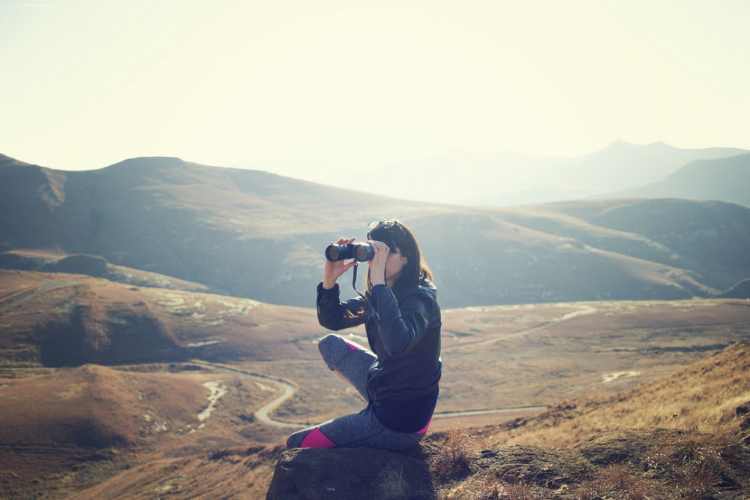
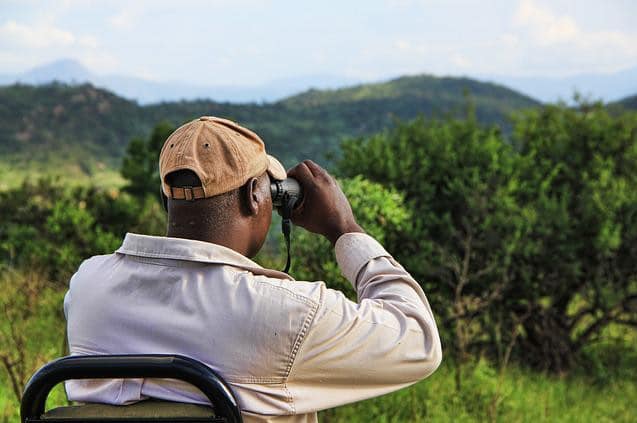
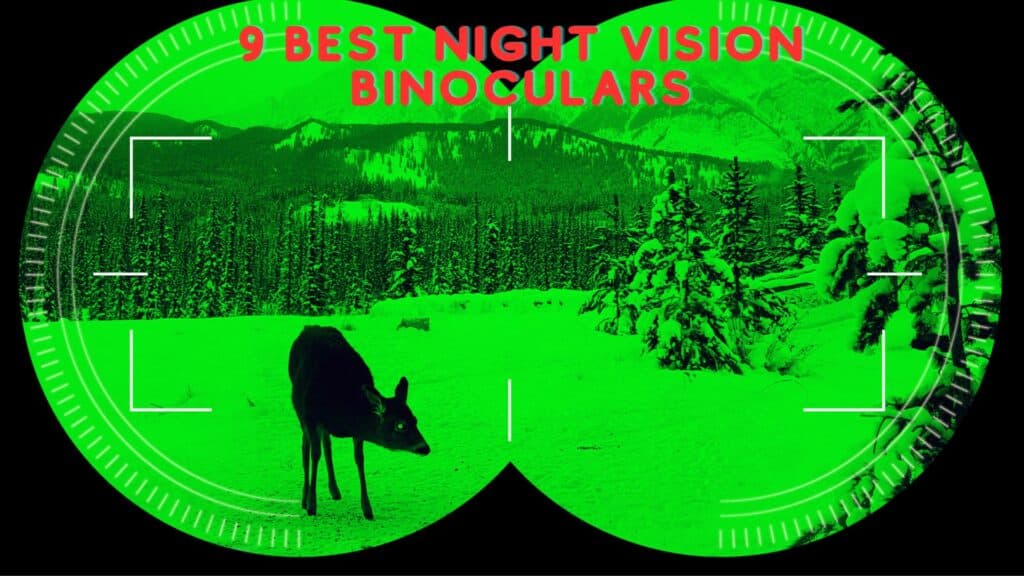
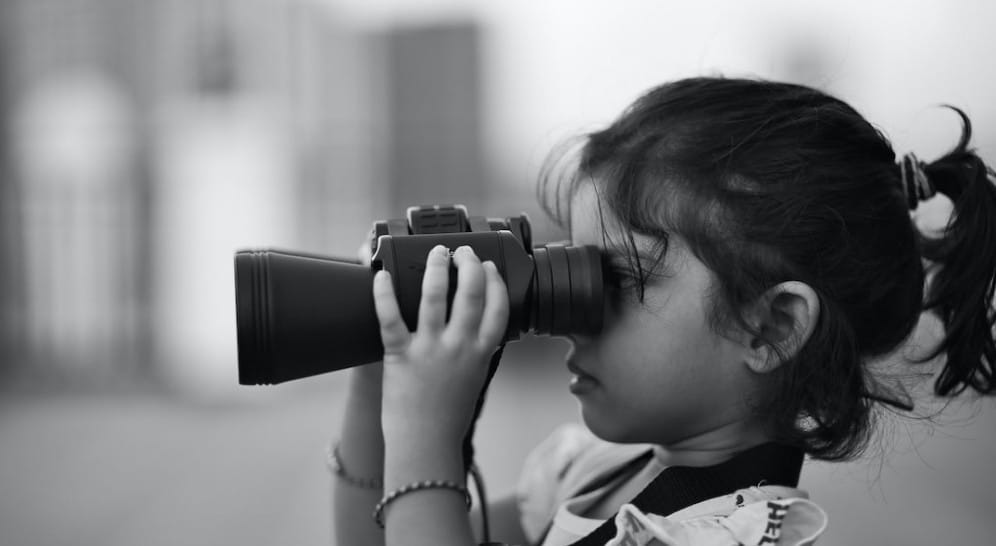
Hey there! I just came across this incredibly handy post on binoculars maintenance tips, and I must say, these tips are going to be a game changer for me and my trusty binoculars. 😄 I especially loved the advice on cleaning the lenses properly; I had no idea that using my shirt could potentially damage them!
By the way, has anyone here ever tried using a lens pen to clean their binoculars? I’ve heard it’s a useful tool, but I’d love to hear about your experiences with it. I’m always eager to learn more to make sure my pair lasts as long as possible.
Happy birdwatching (or whatever you use your binoculars for)! 🦉🔭
Hi Jennyse!
Thank you for your great comment!
And that is actually a very good question that I didn’t even think of while writing this blog post and I will add it in somewhere, thanks!
To answer it, I did have a lens pen before, but I tend to forget to use it haha.
It is better than a regular cloth for sure, to avoid having scratches on your lens, good observation and thanks again!
I wish you happy birdwatching as well!
Kind regards
Lizzy
Very informative about Binocular and it’s many maintenance tips!
I’m thankful I’ve discovered this article, as I recognized the last tip about humidity is where I should take them to a professional to get cleaned. This was satisfying as I was trying to find ways to deconstruct it, and clean the moisture from the inside myself. I’m glad I stopped.
If there was no professional that is available, can this be done by the average Joe? Or does this ruin the optics settings within the binoculars?
Hello Jeremy!
You are very welcome and I hope that your binoculars will last you a lifetime!
About your question: I would not try to repair binoculars yourself, but contact the company where you bought them, as most of the time they do have a lifetime warranty!
I wish you happy birdwatching/safari, etc..!
Kind regards,
Lizzy